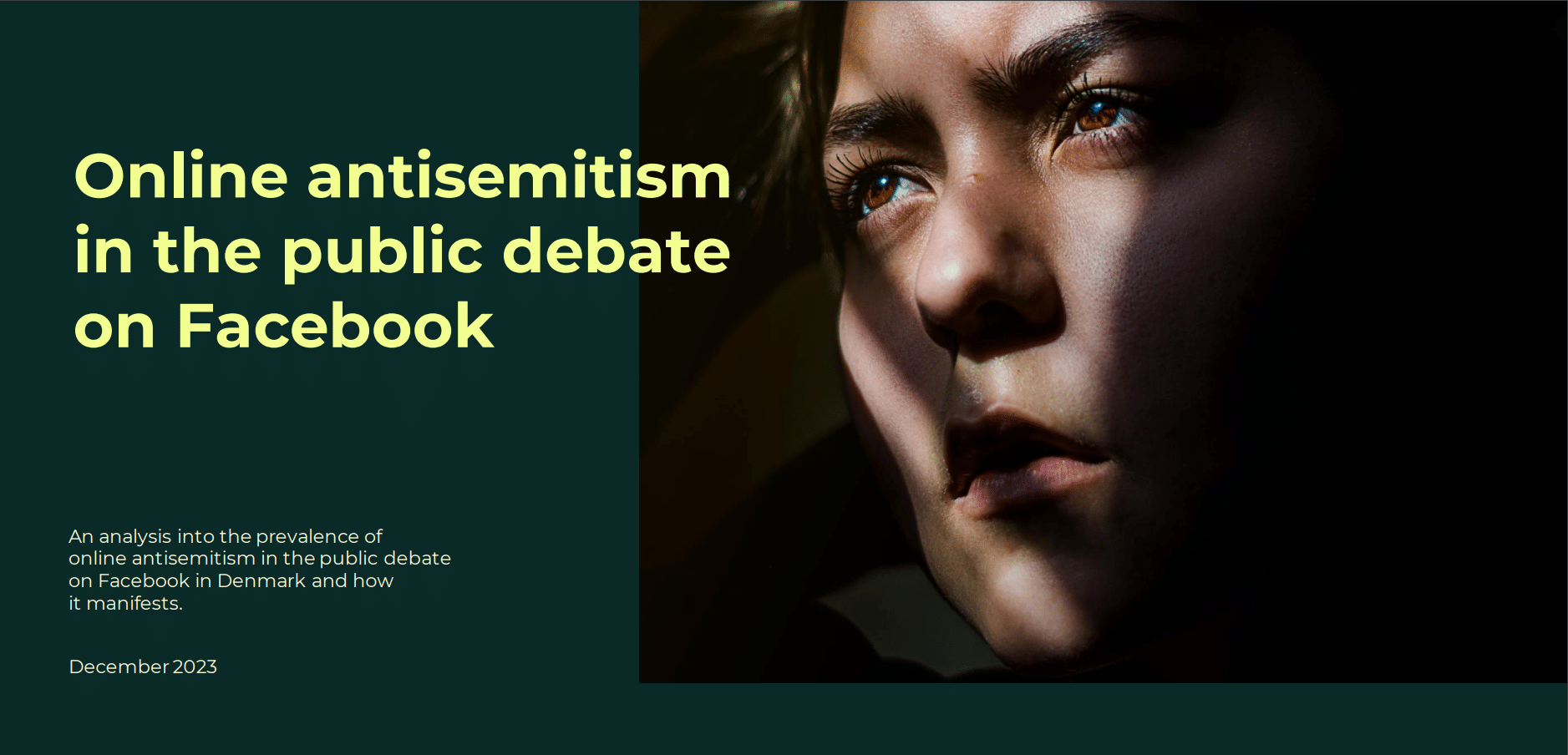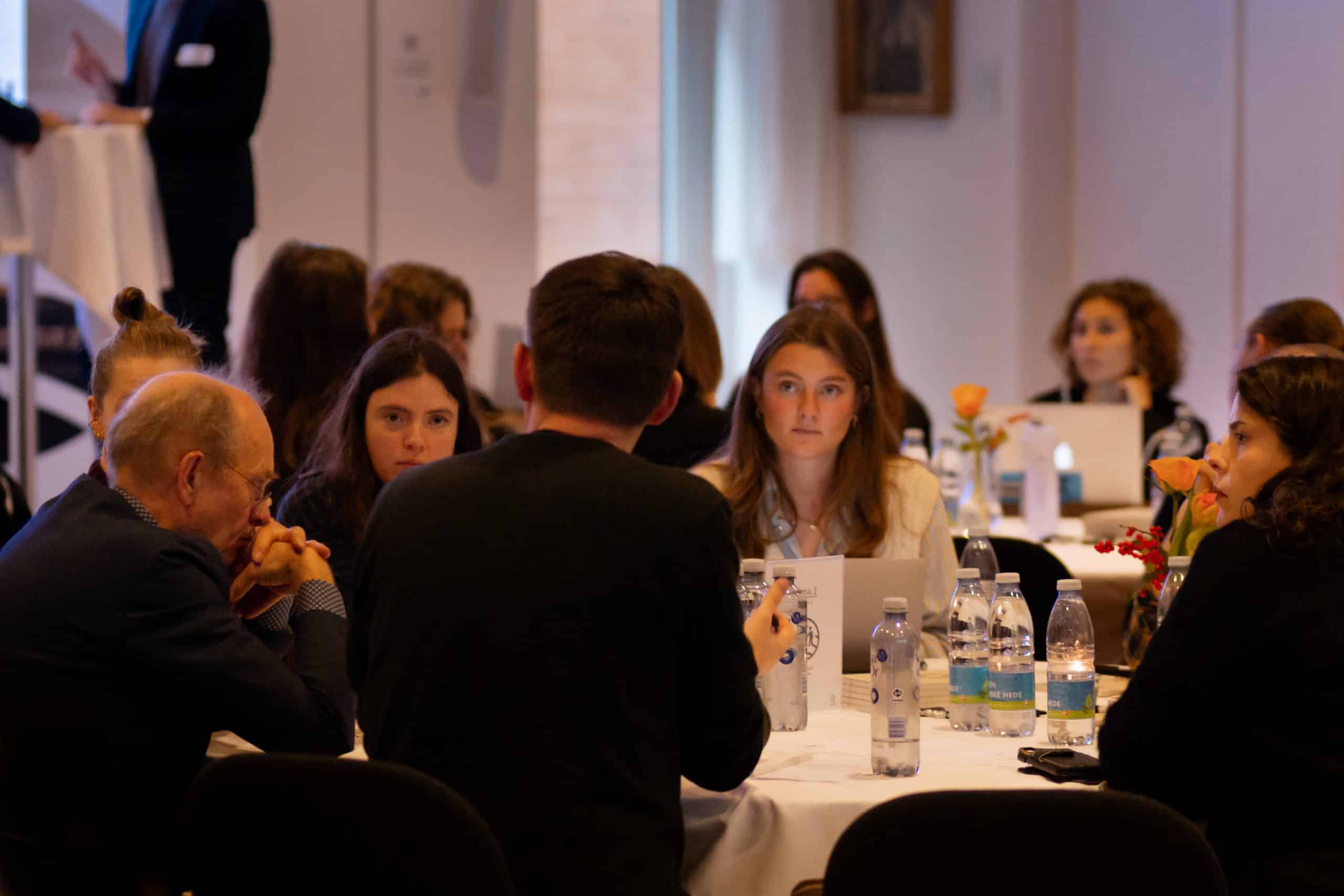Building Digital Resilience: How AMOS is Strengthening Efforts Against Online Antisemitism
Categories:
News
Udgivet: 07 Feb - 2025
Danish Minister of Justice Peter Hummelgaard speaking at the launch of the AMOS analysis “Online Antisemitism in the Public Debate on Facebook” in December 2023. Photo: the Jewish Information Center
Building Digital Resilience: How AMOS is Strengthening Efforts Against Online Antisemitism
As we mark the 10th anniversary of the Copenhagen terror attack, we take a moment to remember the victims and recognize the incredible efforts of organizations that emerged in its wake.
One such initiative is AMOS – Alliance Against Online Antisemitism, launched in 2023 as a program supported by the Danish Agency for Culture and Palaces, and driven by Nordic Safe Cities and the Jewish Information Center. The program aims to counter online antisemitism by analyzing its scope, mobilizing civil society organizations, and piloting new prevention efforts.
We are proud to announce that AMOS has received continued support from the Danish Agency for Culture and Palaces to extend our work for another three years. This allows us to pilot new prevention initiatives and create safer digital spaces in Denmark, reducing hate, discrimination, and antisemitism online.
The Digital Challenge Today
The digital landscape is unpredictable — decisions by tech leaders like Elon Musk and Mark Zuckerberg can transform online ecosystems overnight. This means that countering online antisemitism requires adaptable and resilient programs that bring together authorities, civil society, and digital communities.
At Nordic Safe Cities, we have spent years operationalizing policies and action plans to make cities and communities safer. Our work spans various efforts—from tackling disinformation in elections to preventing gang-related crime and strengthening digital democracies. We take well-crafted governmental policies and turn them into concrete action in cities and on the ground.
This methodology was applied to antisemitism through AMOS, taking inspiration from our Safe Digital City initiative, which has helped cities combat online hate since 2020.
Mapping Online Antisemitism: What We Found
Using AI-driven analysis, we examined 54 million comments across Danish political and media Facebook pages over two years. The findings were alarming: when Jewish people were mentioned in a comment, 10% of the time, the comment was antisemitic. Antisemitic discourse was present year-round, seamlessly integrated into broader conspiracy theories, misinformation, and extremist narratives.
This shifting landscape requires ongoing monitoring. In June 2025, we will release an updated analysis, examining 20 million comments to assess how antisemitism and polarization have evolved since October 7th.
Mobilizing Partnerships to Address Online Hate
Recognizing that antisemitism does not exist in isolation, we worked to broaden the coalition addressing digital hate. Early on, we convened 40+ civil society organizations (CSOs) to identify prevention gaps and co-develop solutions. This ensured that antisemitism prevention was not solely the responsibility of Jewish organizations but part of a broader societal effort.
Key partners included police (including online patrols on platforms like Minecraft and TikTok), schools, universities, prevention authorities, youth organizations, LGBTQ+ advocates, and community moderators from large Facebook groups. Engaging digital influencers and group moderators can be an effective strategy — Analyse & Tal shows in a report from 2024 that while only 2% of discussions in community groups contained hate speech, that number jumped to 5% in political and media spaces, and this tells us that we can benefit from involving a new group of partners that are not traditionally part of the prevention structures.
Three New Prevention Initiatives for 2025-2027
After extensive research and collaboration, we identified seven key prevention gaps, which were then refined into three targeted initiatives now being piloted:
- Online Upstanders – A bystander intervention initiative, inspired by the successful initiative ‘I Am Here’ in Sweden. This involves training digital volunteers to create ‘lovestorms’—overwhelming online hate with supportive, democratic discourse. Using AI dashboards, we can detect hate speech spikes in real-time, enabling swift intervention.
- Digital Preparedness Plan – A crisis-response framework that ensures rapid action when digital hate surges. This plan includes a calendar of high-risk dates (e.g., anniversaries, elections, Pride, religious holidays) to anticipate and mitigate online tensions before they escalate. It also enhances cooperation between CSOs, authorities, and digital volunteers.
- Education & Awareness – A new digital antisemitism curriculum for 2025, expected to reach more students and become part of Denmark’s national curriculum on antisemitism. This platform will combine AMOS resources with interactive tools to challenge stereotypes and promote digital literacy.
Moving Forward
The fight against online antisemitism and hate requires collective action. The next phase of AMOS is a step towards a safer, more democratic digital space—but we need more voices, partners, and advocates to join us.
If you’re an organization, policymaker, or digital leader interested in collaboration, reach out! Let’s work together to build a future where online spaces foster inclusion, respect, and democracy.


